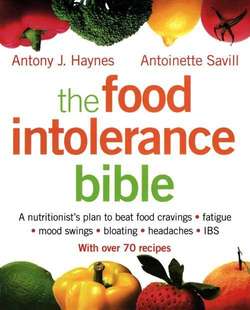Читать книгу The Food Intolerance Bible: A nutritionist's plan to beat food cravings, fatigue, mood swings, bloating, headaches and IBS - Antoinette Savill, Antoinette Savill - Страница 14
Food Intolerance and IBS
ОглавлениеIBS was the subject of a recently published study in the respected journal Gut, which showed that food intolerances are very much involved in Irritable Bowel Syndrome (IBS). It proved what most complementary practitioners have known all their professional lives.
The study involved 150 out-patients with IBS who then had an IgG food intolerance test. They were not shown their results. Seventy-five of the participants were provided with diets that excluded the foods to which they had raised IgG antibodies, while the other 75 participants were given ‘sham’ diets that excluded foods to which they did not have raised IgG levels. A number of symptoms of IBS were compared before and after the diet for 12 weeks. The conclusion was that a diet that eliminates foods to which you have a raised IgG level is indeed effective in reducing the symptoms of IBS.
You may say that this is an obvious finding and you might have expected as much, but the current treatment of IBS is based largely on the use of antispasmodics, antidepressants and medications that alter bowel habit, depending on whether constipation or diarrhoea is the predominant problem. This is usually unsatisfactory, however, and encourages patients to seek out alternative treatment. Of course, if food intolerance is to blame for the symptoms, even if not wholly, then the most sensible first-line approach would be to change your diet. This would make recourse to medications the alternative path.
This study represents an important landmark in acknowledging the importance of food in triggering or causing IBS. The patients had experienced symptoms for over a decade and were found to be sensitive to approximately six to seven foods each, on average. Those who fully adhered to the diet showed the greatest improvement.
The reintroduction of the culprit foods also caused their symptoms to get worse. The patients did not embark on anything other than eliminating the culprit foods: They did not take any digestive enzymes, nor anything to restore low stomach-acid levels. They did not supplement with ‘friendly’ bacteria to combat any possible yeast overgrowth. They did not take active steps to heal their intestinal lining, nor did they take active steps to reduce their stress levels. If these things had been addressed, it is likely that their improvements would have been even greater.
